*Before reading, please note that the following is a sensitive subject for many. I do not wish to offend nor aggravate: I just share my experiences. I did not have a fact checker, and I therefore don’t guarantee every word to be 100% accurate either. Please read this lightly, with the most open and unbiased of mind. As always, you are more than welcome to share your views in the comments below.
I am an American Jew from a predominantly Jewish suburb of Philadelphia. I went to a Jewish preschool, attended Hebrew school until my Bar Mitzvah, and continued my Jewish education until I was confirmed. I’ve been surrounded by images of Israel since I was small – I’ve long had mental pictures of what Tel Aviv, Jerusalem, and the Western Wall would look like in person. While most people in my area don’t travel extensively, everyone, and I really mean everyone (assuming they are Jewish), makes a trip to Israel. It’s our second home, we were always taught. It’s practically our 51st state, we are always told. I – an American Jew – am supposed to like Israel.
I first went to Israel two years ago with the Birthright program. I recently returned for another month, to experience the country on my own terms. It was not quite what I remembered.
Birthright leaves you with an overwhelmingly positive idea of the State of Israel. You are shown the beauty, you are shown the fun, and you are shown that all is super well and good. Israel is the land of the Jewish people, and there is no dispute. Palestine is a frivolous and outdated historical term. Israel is the cool, chilled, problem-free hookah party of the Mediterranean – the shiny second home to all Jews worldwide.
Of course, none of the above is particularly true.
This time around, I made sure to expose myself to more than a bottle of Gold Star and a night out in Tel Aviv. This time, I paid a bit more attention. The following documents what I found, and what I learned.
1) Palestine is More Than Real
I ventured to Ramallah, Hebron City, and the South Hebron Hills – locales in what is often referred to as the West Bank. In Ramallah, I saw car dealerships with “PALESTINE” printed on the façade. “Welcome to Palestine!” they shouted in Hebron City. “Here are our homes and our flags, as recognized by international law, and there are the Jewish settlers that shit in our wells and kill our animals,” they’d show in the South Hebron Hills. Palestine represents a people, a history, and in most places (yet not all), land borders that are not up for debate. Palestine is more than real.
2) Racism is Rather Alive
In my humble opinion, the average well-educated American youth (a broad term – apply your own definition) exhibits almost zero racist sentiment. He or she keeps an open mind, and views all humans as largely equal. In Israel, this is not what I found.
To me, it seemed like the average well-educated Jewish Israeli youth was far more racist than I’d realized before. Israel’s history, past and present, is marked by a profound conflict between Jews and Arabs, and I found this conflict manifested concretely in the behavior of my peers. In layman’s terms, it just seemed like nobody wanted to like the other side. It seemed like deep down, nobody really wanted to reach a solution. After speaking with many well-educated Jewish Israeli youth, as well as many well-educated Jewish Israeli adults, this is what I found.
The above documents my objective observations, and nothing more. Next, we need to ask why. Do I think these sentiments are harbored consciously? Do I think well-educated, intelligent, and open-minded Israeli Jews want to believe that they are racist (or better, might appear racist to their well-educated American counterpart – yours truly, I believe)? No, of course I do not: I just think this is a reality of living in Israel.
In addition, it is important to mention that my personal objectivity to race and creed exists solely on a theoretical level: I’ve never had a proverbial “brother” killed by the proverbial “enemy.” Conversely, the racism I observed among Israeli youth may very well exist in a practical setting: “my real brother was killed on the real front line by a real Arab.” Now, forever more, this person may be sour towards all Arabs. The level mind understands that this blanket racism is unjust, but again, this analysis is merely theoretical. In practice, the soldier who just lost a family member may react differently. Can you really blame them – especially if you haven’t been there yourself? Maybe humans just aren’t perfect enough to remain objective after such a tragedy? Perhaps, biology is the real enemy.
3) Checkpoints, Soldiers, Fences, and Fanaticism
This third point is meant to show that Israeli is neither “cool,” “chilled,” nor “problem-free.”
If you venture off the Birthright bus path, and I say this literally, you’ll realize that things are not so ho-hum. There are a substantial amount of electric fences dividing what is supposedly Israel, and what is supposedly Palestine. There are a substantial amount of 19-year-old girls patrolling the streets with semi-automatic assault rifles. There is a massive cement wall dividing Ramallah and East Jerusalem, impeding ever-so-slightly the gorgeous backyard view of rolling green hills that the Palestinians on the other side once had. And while you, innocent Jewish tourist, may not feel affected by any of this, it is very important to understand that while you roam freely on either side of the fence, there is an equally innocent Palestinian local being mocked, harassed, and possibly assaulted for the grand injustice of going about his or her daily life. All are not equal in the State of Israel. All is not “cool,” “chilled,” nor “problem-free.”
On a similar, but ultimately different note, Jerusalem is not quite the mystical, Jews-only, holy city that Birthright allows you to believe; rather, it is quite possibly the religious fanaticism capital of the world for Jews, Muslims, and Christians alike. If you really wander the streets, and really don’t identify with these fanatics yourself, you will probably, like me, leave with both a profound headache, and the profound confusion of: how did I not see this madness before? There are droves of religious tourists basically crawling the laneways, physically unable to stand, crying all the while, because everything is so holy. Jesus was born there, ate lunch there, and had coffee there. Allah gave his divine word in that temple, and ten meters to the right, there are orthodox rabbis scouring for the ambling impressionable Jew on which to shower their views. There’s the Russian Catholic Mission, the Turkish Muslim Mosque, and the Argentine Synagogue, and you better not cross into opposing territory or all relevant gods will smite you with a clap of blasphemous thunder. I speak very lightly here, my Reader, but yes: Old City Jerusalem is one bloody insane place, and is most likely the religious fanaticism capital of the entire world. I just don’t see what could beat it.
Lastly, I share my experience in Hebron. I traveled to Hebron (a painless day trip from Jerusalem) with my friend Jaleal, a Palestinian-American I had met in my hostel (and the cousin of an old Penn State roommate, so we had actually met before). Jaleal’s grandfather used to live in Yaffa, next to Tel Aviv, until one day, Israeli soldiers knocked on his doors, and plainly told him, “Sorry, but you don’t live here anymore.” He still has the keys to the house. Jaleal wore a kafiyah, as a symbol of his political affiliation, and I wore one too, because I was cold and they look cool. I knew what I was doing, of course. I suppose I wanted to see what would happen.
When wandering Hebron, and trying to enter a few of the mosques and synagogues, the question, posed by a boorishly apathetic Israeli soldier, was simple: “Jew or Muslim?” If you answered right, you could enter, but if you answered wrong, you couldn’t. If you said Jew, the possessed teenager reading from the Torah would grab your arm and dance you around in circles, and if you didn’t, he’d shoot you an angry glance and get back to praying. Jaleal and I woke up in the same hostel, traveled to Hebron on the same bus, come from the same country, and could discuss a wide range of delicate issues with the same mutual respect and curiosity, yet because of our ultimately loose religious and political dispositions, we were treated very differently. Once more, I understand that Hebron is a tense, dynamic place, and I am not terrifically surprised by what I experienced. Regardless, it made me angry and confused. It really just seemed like nobody wanted to get along.
When I arrived in Israel, I had just spent 4 months in West Africa. I traveled through Sierra Leone, where just a short decade ago, child soldiers were burning villages and removing live fetuses from young mothers with a dull knife’s blade. I sat in the Abidjan International Airport, hearing a story from a young French teacher, who told me how a few years back, he hid himself, his wife, and his small children under beds as bullets riddled their house in the recent Ivorian conflict. I spent time in countries that were still very much developing. As it goes, war is often a part of this development process. However, while all of this recent bloodshed was unspeakably brutal, I was left with the impression that these conflicts were ultimately fleeting, and that deep down, everybody truly wanted to live in peace. When I landed in Tel Aviv, after 4 months of West Africa, and before 4 months of cycling through Central Asia, I suppose I had hoped for a calm, relaxing, and sensible experience; I wanted to feel an effortless sense of Western-ness, and of home.
As you now understand, this is not what happened. And after three weeks, on a sunny afternoon in Tzfat, I had a legitimate mental breakdown.
The day started with Stefy and I, a hostel friend from Ecuador, meandering up the hill and into the holy city. We passed a rabbi. “Jewish?” he asked. I, Jewish, said yes. The rabbi received me warmly. Stefy, a non-Jew (yet with a major interest in getting to know every inch of the country, one far stronger than mine), replied negatively. She was snubbed.
“What the f*ck is going on here..” I questioned.
A few hours later, I went in search of water. I found a Hillel center, and wandered inside. The rabbi poured me a glass, a predictably, asked: “Are you Jewish?”
“Yes,” I replied. “I am. And?”
“Want to davin? Let’s davin. Let’s put on some t’fillin and say Sh’ma (“Israel, you are great, Israel, we love you,” I paraphrase).”
“No, please. I’m really not in the mood.”
“Come on, it’ll cheer you up,” he insisted. He grabbed the lace, wrapped it around my arms, pulled out a Siddur, and began singing the Sh’ma.
After we finished, I let loose. “Why does it matter if I am Jewish? Why does everyone keep asking me if I’m Jewish? What if I had said no? I understand befriending a ‘brother,’ but more importantly, why is everyone so ready to shit on you if you are not their brother?”
The gist of his response was simple: for the first time in history, the Jews have a home. In order to sustain this home, we must be a bit “exclusive” in our actions. It is not ideal, but this is the way of the world.
While logical, this did little to calm my nerves. I expressed all of the above – all of which you’ve read – with far more anxiety and peril than you might imagine. After a while, the rabbi wanted me out, and offered to pass me along to someone else. “Please,” I replied, “I need to get all of this off of my chest.”
Next, the rabbi walked me down the lane, and into a small synagogue, where “spirited” American Jews had given up their life of normalcy, moved to Israeli, and devoted their life to prayer. In effect, they gave me the same argument: “it’s not perfect, but Jews need to stick together.” I still wasn’t satisfied.
Lastly, and here things took a bit of a lighter turn, I found myself in the house of a rabbi from Philadelphia – a gorgeous estate right in the center of Tzfat – overlooking the history and holy hills. After reiterating the above, our rabbi broke out into this altogether ridiculous, fantastical, seemingly acid-fueled speech about God, the Jewish people, the universe, and a whole lot of other stuff that flew way over my head. If he ever reads this article, I do believe he’ll laugh at what I just said. Sadly, I forget his name (I imagine one of my Readers could actually know who I’m talking about, though), and while the speech was a bit too funky for me, I was awed, inspired, and calmed by his passion for Judaism, and his very unique sense of being totally down to earth while being totally up in the clouds. I thank you once more for your hospitality, the food, and your time. I’m sure our paths will cross again.
Traveling has taught me in many ways to be an accepting person. I don’t care what you look like, what you believe, or where you are from: if you’re a good person, I am open to being your friend. In Israel, this is not quite what I gathered from the locals. In Israel, mild racism and a sense of exclusion seem to be the norm. Furthermore, this insanity does not exist in a third-world, traditionally “developmental” setting: it exists under the umbrella of super technology, massive skyscrapers, public buses with WiFi, and altogether as much modernity as you’ll find in this day and age. Having traveled to almost 50 countries – some of the world’s poorest and most disorganized included – I really think Israel is the craziest f*cking place I’ve ever been.
Lastly, in line with the title of this post, I must honestly admit: I do like Israel. However, it is not the hookah-party wonderland it is often made out to be, and I don’t think I’ll be living there any time soon. Israel is one crazy place.
From the Pamir Highway in Northern Tajikistan,
Will
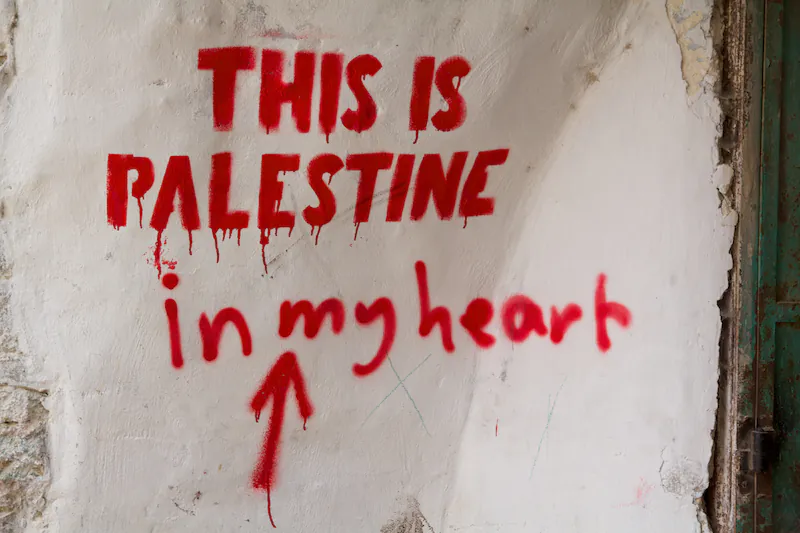
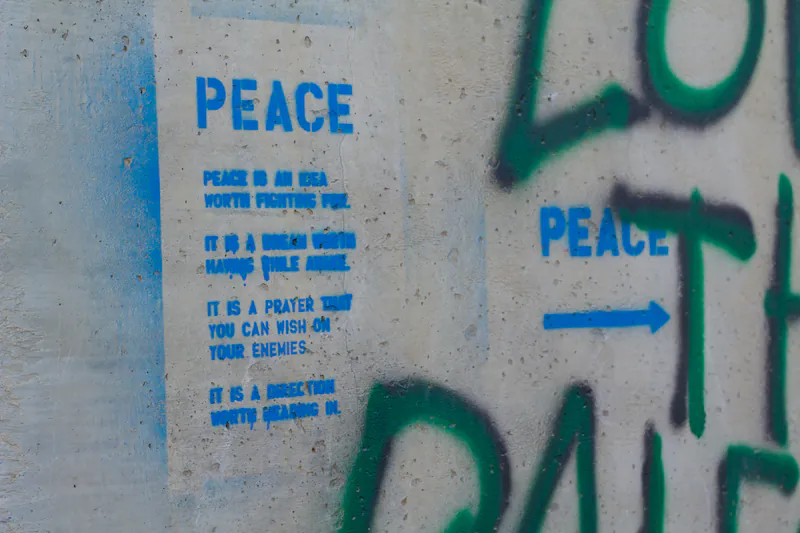
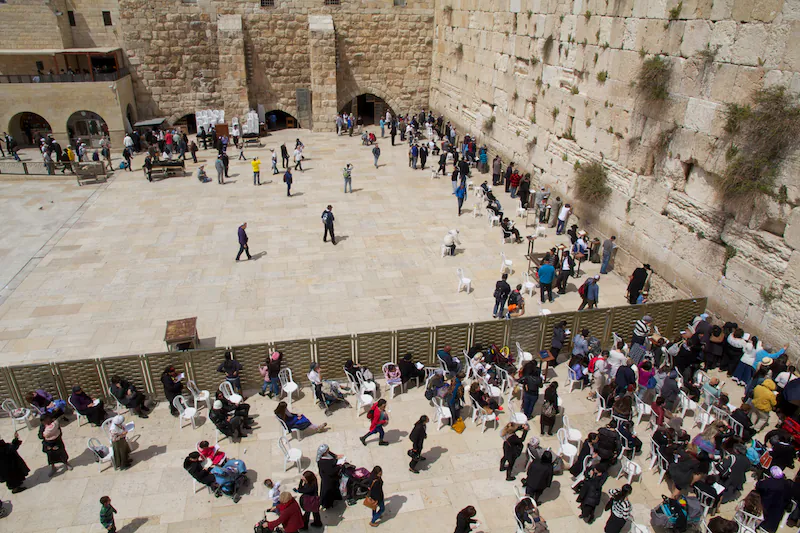
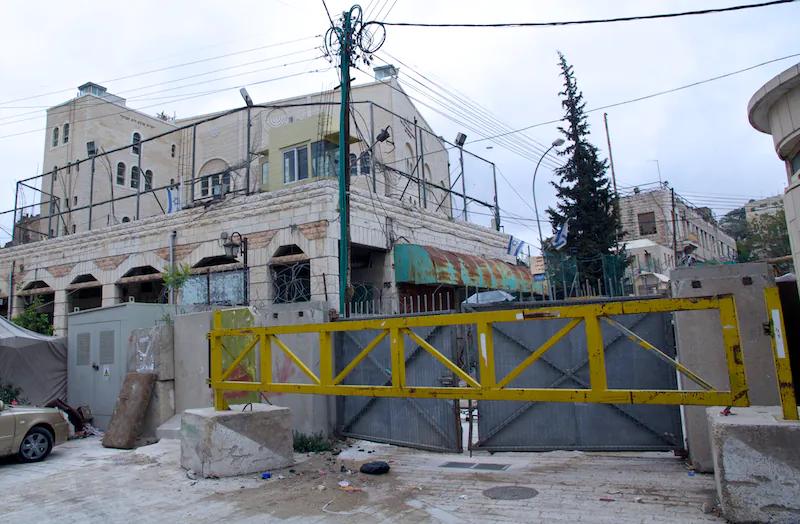
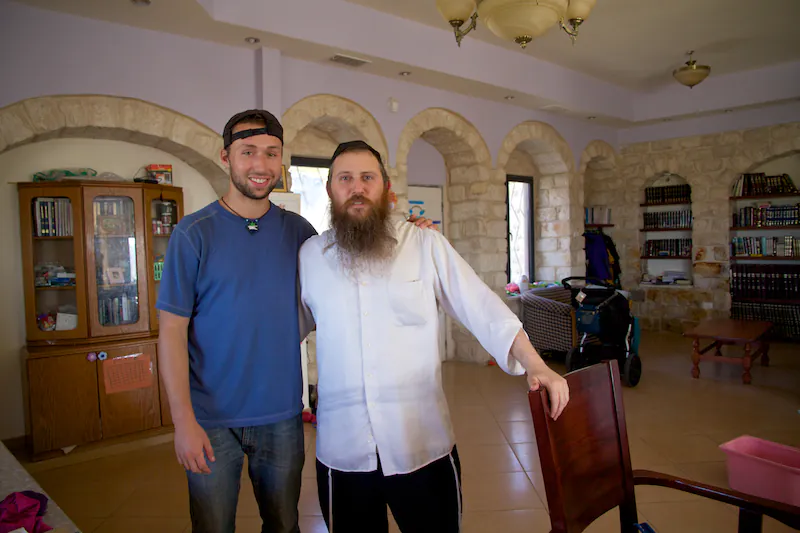
That was one fantastic story, Will! Thank you!
Thanks Kari! Hope all is well! Spending time mostly in Norway or France?
A friend from high school, who also attended PSU sent me this, and though I am not one to usually argue and involve myself in online discussions, I am in a unique position to respond.
I, too, grew up in suburban Philly. I went to Jewish preschool as well, attended Neshaminy schools. My summers were spent at Young Judaea summer camps, where I also was shown this beautiful bright image of Israel. My hot Israeli counselors with their sexy accents and army tales had nothing on the dorky Jews I had begun dating. I drank the koolaid, if you will. I was (and still am) a huge Zionist. I spent a year in Israel before attending BU and went back to staff numerous birthright trips and be a part of “Hasbara” or PR for Israel groups.
During one of these visits, I also had a breakdown in the West Bank. I asked myself over an over why they never taught me about the Palestinians suffering. The difference between us, however, is that I spoke to both sides. I saw the horrible conditions of the West Bank and I cried. But I also volunteered in the south with kids who are traumatized because they constantly live in fear of rockets. I met with a hero from the Yom Kippur war who lost his teenage daugher in a terrorist attack. And I made Aliyah and joined the Israel Defense Forces.
I serve in Ashdod, a city Hamas loves to shoot rockets at. So my base is covered with shelters since I only have 45 seconds to run before it hits. Though I consider myself left wing moderate, my best friend in the entire country lives in the West Bank. Her best friend from childhood moved away because Arabs murdered her mom and brother. The electric fence you write about has lowered terrorist attacks by over 90%, and was built for that purpose, not to keep anyone out.
So yes, Israel does have a lot of problems, but we are doing the best we can over here. I am truly happy you saw a different part of Israel…but don’t forget both sides of the conflict suffer greatly.
Arielle,
Thanks a lot for the reply. Respectfully, I think you missed the point of my post. As the writer, I take full blame for this.
This article was not meant to directly highlight the cruelty of the Israeli government and military. Instead, it was meant to express, primarily to the “I just returned from Birthright” crowd, that beneath the well-known shell of Israeli/Palestinian conflict, all is not particularly normal within the often venerated and empathized Israeli contingency, of which I find my target audience widely guilty. Palestine is real – a fact often misunderstood. The “hot Israeli soldiers” are not always righteous in their doings – also misunderstood. Finally, Jerusalem really is one of the craziest places on Earth – not the mystical mellow wonderland of cobblestones and hookah.
As you say, my examples are inherently biased against Israel, and if my goal is to merely show that the place is crazy, then I should have included some words about Palestinian hostility as well, right? While that which you mention about Ashdod, etc. is very relevant, and would only strengthen my argument, I feel like these facts are largely understood, and I therefore chose to omit them. Further, and back on your side, I’d say that this “understanding” is largely oversimplified – equating Palestinian diplomacy with bombs and nothing more – and in a future article I could perhaps try my hand at deconstructing it. However, for this one, I was really just trying to bring light to those who have not had the opportunity to see the Israel that I did. To someone closer to the situation – any Israeli, and yourself included – I don’t think I said anything groundbreaking whatsoever. I’m sure most of my Israeli friends yawned when they read this!
Let me know what you think. Would love to keep discussing.
Cheers from Hong Kong,
Will
AMazing read, Will. This article makes me think, makes me very curious at the same time; about minds of human, that is strongly organised by their background. keep on exploring and writing, Will. Am a big fan.
t
Thanks a lot, Trecia. Where are you in the world now? What are you up to?
Dear Will, it was great reading your post, I could relate to everything you wrote.
I still remember what I told you, (and I wont repeat it again)… but in short being a jew in Israel is very different than being a jew in the states…
the over-protection-ness is a cover-up for “light” racism. you opened my eyes and made me feell a bit a shame of that… it’s almost impossible not living in israel and not being a bit racist, doesn’t matter how “open-minded” “freedom-seekr” “look at the person and not his ethnicity”, this is a crazy melting pot, and being different and having your own opinion, excludes you – and you probably know it’s really not easy for me to live here because of what you wrote. It was wonderful hosting you and seeing you again, and sorry I did not provide you a towel 😛 I still remember that! hope to see you again, BTW, when are you back in the states? I’m visiting this october.
Hey Shai! I’m glad you mention that being a jew in Israel and a jew in America are categorically different; this is valuable information for my target audience – “underexposed” (as of yet) Jewish American youth.
As it seems like we can agree, nothing I wrote is particularly groundbreaking: any and all Israelis are probably yawning at my words. What I described probably is and has always been a basic reality of living in Israel. I just wanted to share this with those who haven’t had the opportunity to go see for themselves.
I won’t be back in the States in October – hope to see you again somewhere soon though! Have a great trip.
Best,
Will
Hi Will–Amazing change in your attitude. I’d just like to request one thing–don’t forget the peace movement in Israel. It used to be huge–maybe it still is. Those Israelis are willing to accept the Palestinian state in peace.
Yes – definitely important to mention. I don’t think this necessarily detracts from the “craziness,” though.